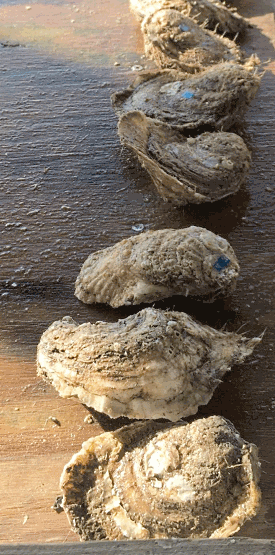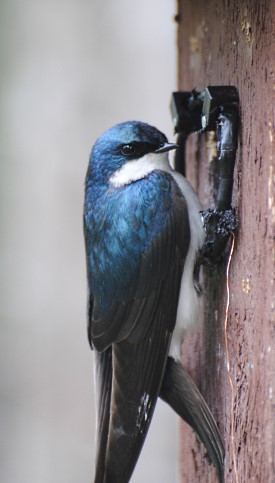SICB Annual Meeting 2019
January 3-7, 2019
Tampa, FL
January 5 – Symposium S5: Stress phenotype: linking molecular, cellular, and physiological stress responses to fitness

Most organisms initiate a highly conserved, ‘stress response’ in the face of stressful environmental and social stimuli. However, studies relating variation in organismal level stress hormones and fitness are often equivocal. One reason for discrepancies among studies is that the relationship between the stress response and fitness is often condition and context dependent and thus will depend critically on the life-stage and environmental circumstances in which it is measured. Furthermore, many molecules involved in the stress response show a biphasic relationship with health outcomes, where low levels offer protection and high levels are detrimental. Importantly, the stress response is often characterized by a single physiological or cellular parameter such as glucocorticoid stress hormones or oxidative stress levels despite the fact that this organismal response requires the integration of diverse cellular, physiological, and behavioral processes. Currently, we lack a comprehensive knowledge of how different levels of the stress response are connected to one another. Evolutionary ecologists have typically focused on how aspects of the stress response, such as changes in glucocorticoid stress hormones, influence the expression of life-history traits and are related to fitness, whereas cellular and molecular biologists have tended to concentrate on identifying the key underlying mechanisms. However it is becoming increasingly clear that a comprehensive understanding of the evolution of the stress response will require integrative studies across levels of analyses from genomes to phenomes. This information will be critical for predicting how selection will influence the integration of this complex phenotype at the organismal level, as well as how the relationships amongst the underlying mechanisms will influence the evolutionary response. This symposium will bring together researchers from diverse backgrounds that study stress responses across levels of analyses (i.e., molecular, cellular, organismal). The overarching goals of the symposium are to: 1) provide opportunities for speakers from diverse disciplines to interact and discuss how organisms respond to environmental and social stress; 2) promote new collaborations across disciplines and develop an integrative model of stress responses; and 3) identify major outstanding questions and future directions for understanding how organisms cope with stressors. At the end of the symposium we will have a structured round table discussion on novel approaches for studying the integrated stress response.
Sponsors: DAB, DCE,
DCPB, DNNSB

Organizers
- Haruka Wada
- Britt Heidinger
Speakers

S5-1 Saturday, Jan. 5, 07:50 HEIDINGER, Britt*; WADA, Haruka; WADA, Haruka:
A brief introduction to the symposium
S5-2 Saturday, Jan. 5, 08:00 ROMERO, L. Michael:
How Truly Conserved is the Well-Conserved Vertebrate Stress Response?
S5-3 Saturday, Jan. 5, 08:30 DANTZER, B*; WESTRICK, SE; MONAGHAN, P; HAUSSMANN, M; BOUTIN, S; HUMPHRIES, MM; LANE, JE; VAN KESTEREN, F:
Maternal glucocorticoids alter a network of offspring traits in red squirrels but are these changes adaptive?
S5-4 Saturday, Jan. 5, 09:00 KELLY, Morgan*; SIROVY, Kyle; LAPEYRE, Jerome; KELLY, Morgan:
What doesn’t bend: Environmentally responsive gene expression and measures of fitness in natural populations of the eastern oyster, Crassostrea virginica
S5-5 Saturday, Jan. 5, 10:00 BREUNER, CW*; BERK, SA:
Links between glucocorticoids and fitness; three hypotheses, lots of data and 10 years later: what do we know, what’s next?
S5-6 Saturday, Jan. 5, 10:30 WADA, H:
Damage-fitness model: Integrating stress physiology models
S5-7 Saturday, Jan. 5, 11:00 RUBENSTEIN, DR:
Epigenetic mechanisms for plasticity in coping with environmental change
S5-8 Saturday, Jan. 5, 11:30 VITOUSEK, Maren N*; TAFF, Conor C; ZIMMER, Cedric; ARDIA, Daniel R:
Stress and success: The role of variation in the efficacy of negative feedback in the glucocorticoid stress response
S5-9 Saturday, Jan. 5, 13:30 BOWSHER, Julia H*; TORSON, Alex S; YOCUM, George D; RINEHART, Joseph P:
Protective Mechanisms During Low Temperature Stress in a Solitary Bee
S5-10 Saturday, Jan. 5, 14:00 SCHWARTZ, Tonia/S; SCHWARTZ, Tonia:
Using Transcriptomics to Further our Understanding of the Divergent Effects of Stressors on Physiology, Life History and Fitness
S5-11 Saturday, Jan. 5, 14:30 :
Roundtable Discussion


